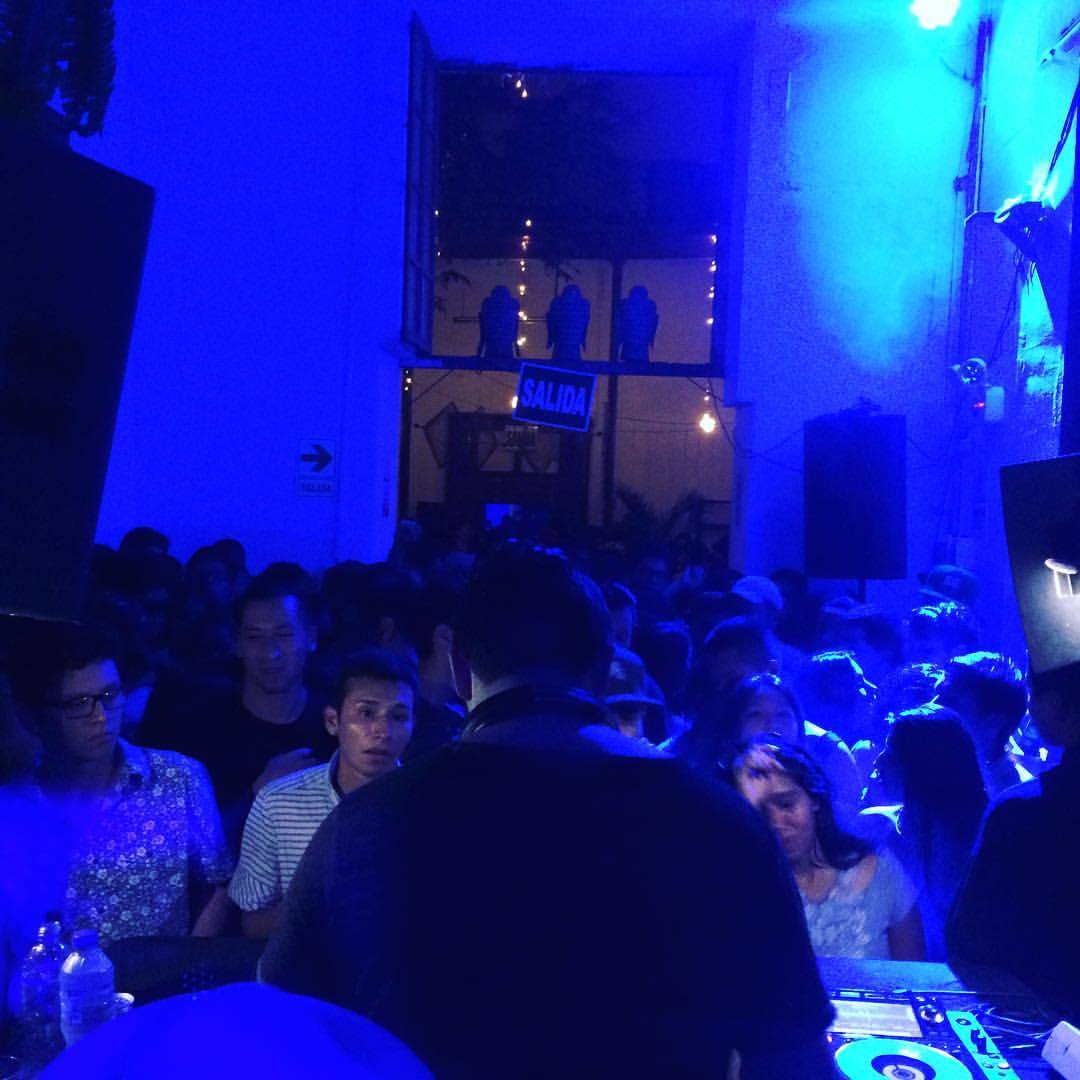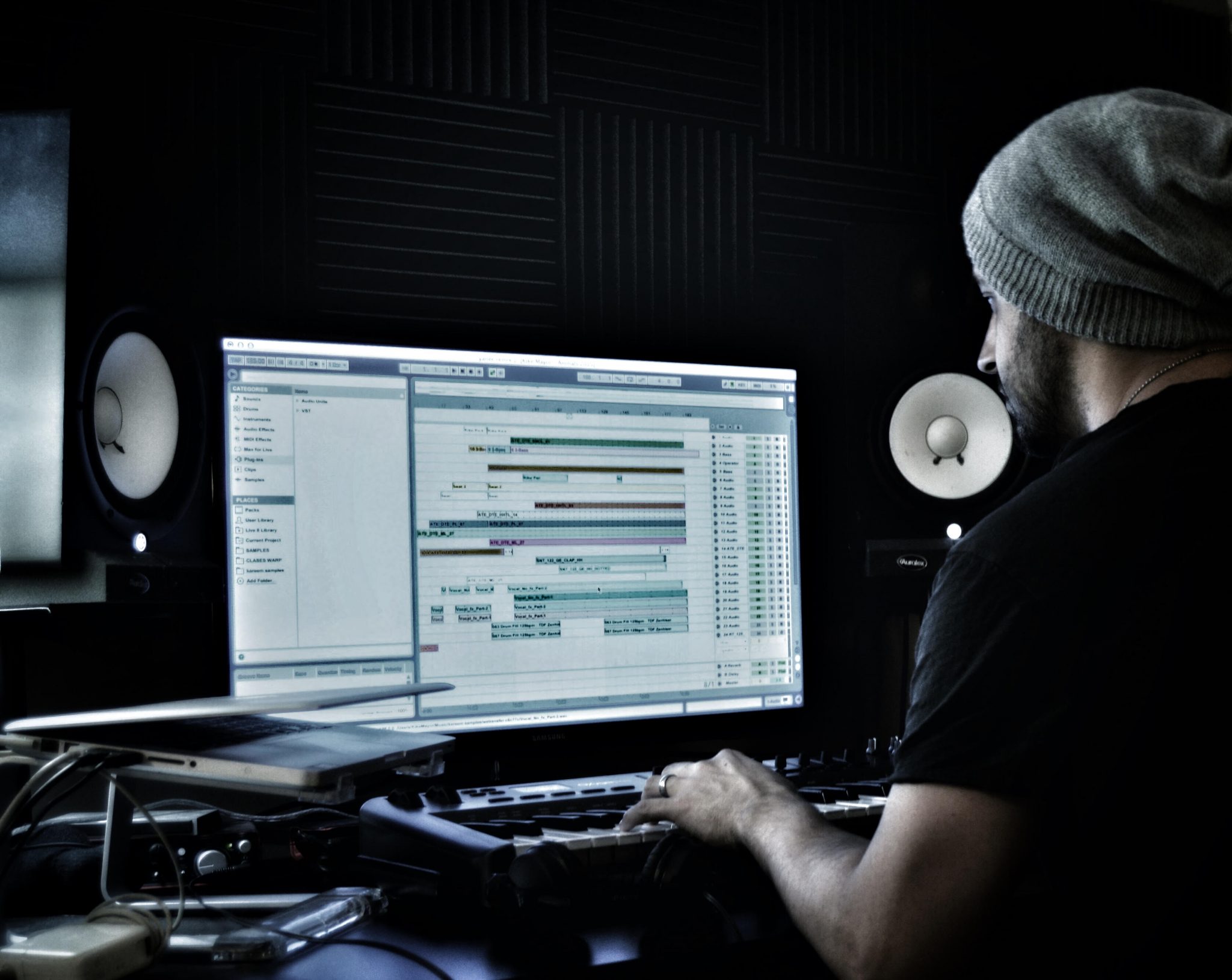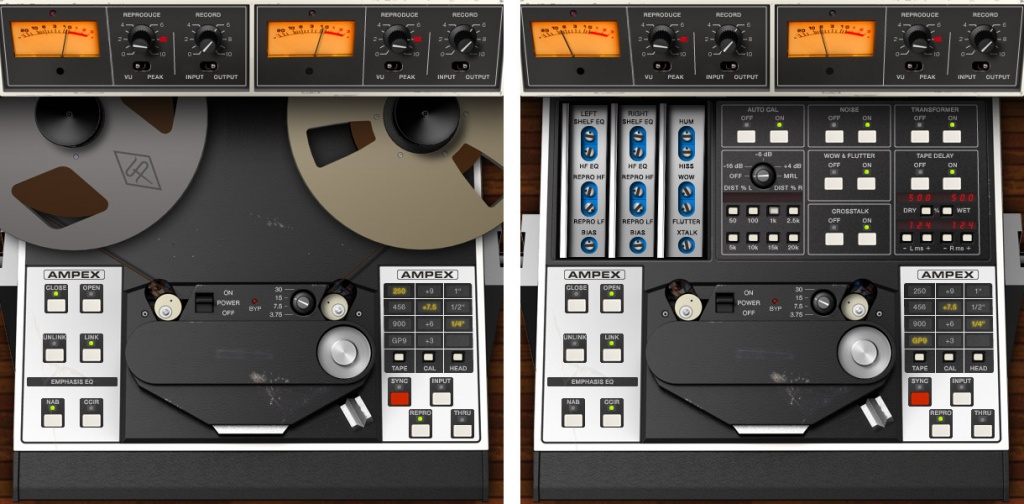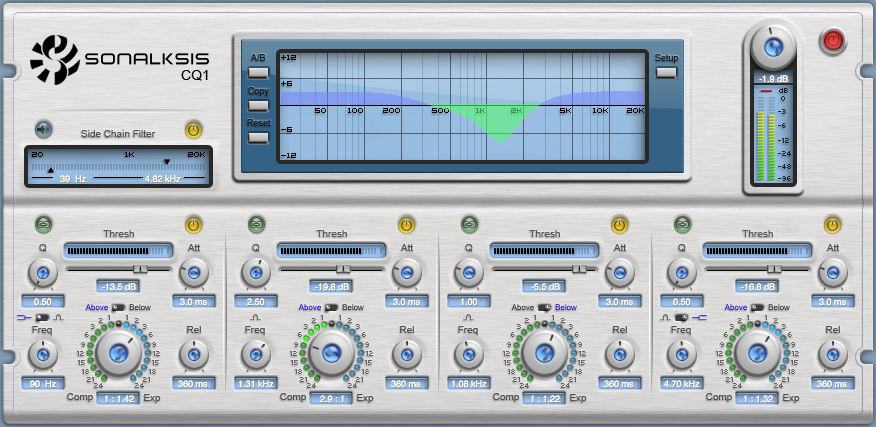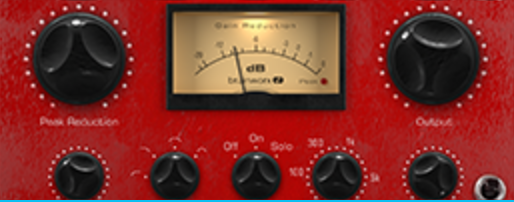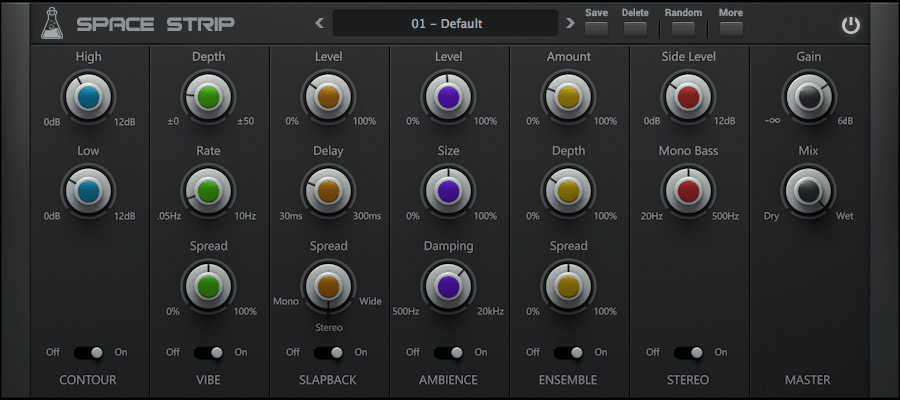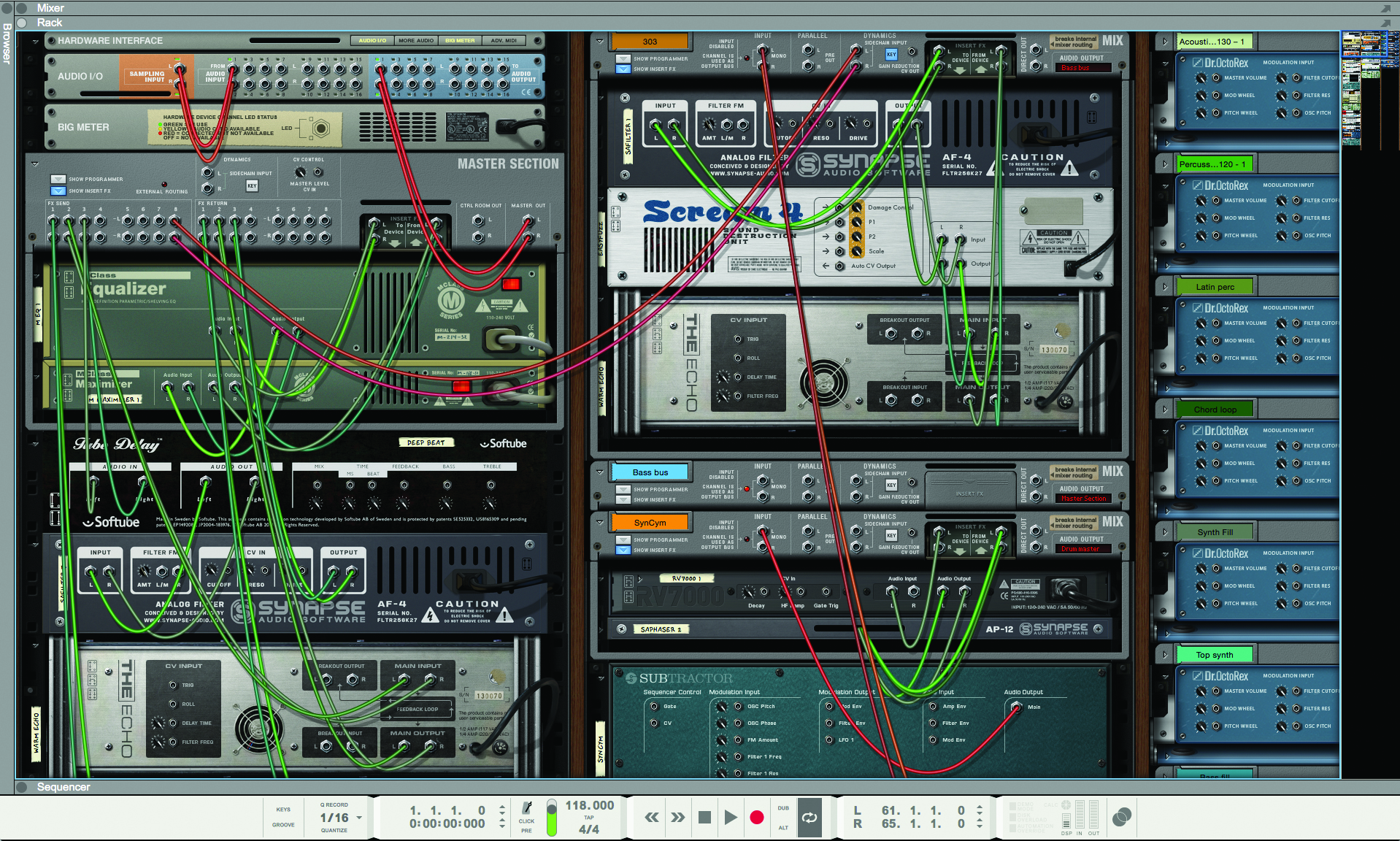Mixing Issues And Solutions
As a mastering engineer, I’m exposed to dealing with mixes every day, and as we know, quality masters are directly linked to the mixes’ strengths. When in the mastering stage, I’m dealing with a stereo file, which means I can make adjustments but also have limitations. If the mixed file has all its issues fixed, I can focus on bringing the best of the song to life. On the other hand, if there are some issues, I might have to fix them the best I can, but that will also blur the song’s best part(s).
Asking the client to fix some issues is part of my job. How about a blog post to cover the most common problems I deal with?
Before I start, I’d like to say that mixing is an art that takes years and years to get the most out of. While you can take many different classes, practicing and exposing yourself to many other issues is the best way to learn. Sending them to me for mastering trains yourself to how specific tests come out in the end.
Some clients send me music every week for mastering. Not because they want to release the song but because they want to see what it will be like. They constantly practice and tweak their songs and start new ones, and those are the ones who learn to mix fast.
But like a client asked me recently, “Will I always have to depend on someone for learning to mix?”
I replied, “No, but you need to learn the basics first and then the rest will be much easier.”
But before you read this post, I encourage you to watch this video I recorded for clients.
The most common mixing issues I deal with in mastering
As a reader, you probably expect easy pointers to what you do wrong within your mixing session, but some of the issues come from external factors. If those aren’t addressed, you’ll have the same problems no matter what you do with your software or how you use your plugins. This is why, quite often, after listening to the first 20 seconds of a song, I already know in what context the producer is working.
This leads to the first most problematic issue I deal with every day.
Lack of experience with mix-translation
What is mix translation?
One develops this skill when they know how their sound will be projected into the world outside the studio. Mix translation requires spending time in the outside world, listening to different types of music, then returning to the studio and listening to the same songs to see how they sound. Your ears eventually understand that if you have your low end at a certain level in the studio, it will have a particular impact in a club or a car. Some people rely on their car to see if the track sounds right, which is, in a way, a form of mixed translation.
But this has a particular twist. If your studio doesn’t have appropriately adjusted settings, your monitoring will trick you into misleading directions. Or even worse, it might mask some issues or enhance parts that don’t translate well.
Does this mean you need a studio with a full range of acoustic treatments and a room correction by Sonar Works?
The answer is no.
I wouldn’t say I like Sonar Works’ plugin because I would rather get used to an imperfect signal than deal with a plugin-induced flat tone. Some like it, and that’s good for them, but honestly, it’s not something you need. You need a sub or Subpac to understand your low end if you do music where the low end is essential. Get a pair of headphones you love that are not consumer grade and get to know them well.
A client kept asking me to boost the sub, and I eventually found out he had no sub. He had a nasty surprise when he got to play the track in a local club.
Many clients have mixes with too much of a certain range (ex. exaggerated low end) which will have repercussion of be sounding wrong in certain clubs and will for DJs to have to readjust their EQ on the mixer to match other songs they mix.
When clients receive the master of their track, they listen to it in their studio and sometimes feel it’s wrong. That is because they have mixed their song to fit the studio’s flaws, and once those are fixed, then something will feel off. The right way to listen to a master is to compare it to a third-party song that we know sounds right. You can also listen on headphones where there’s no external acoustic disruption.
Solution(s):
The easiest solution is to get yourself a wide array of reference tracks. Some people don’t like working with them, but using and knowing them properly will resolve many issues regarding presence, impact, loudness, tone, and general impression. While I work with a client, I usually propose a master that is, according to my understanding, the best presentation possible. Still, if I miss the aesthetic, a reference will significantly help. It goes beyond the words and explanations of a client as it is a concrete demonstration of the wanted result.
That reference cannot be a client’s track. It must be from a third party with whom we agree sounds excellent. Tracks from the client will sound right in his studio because they were made there.
As mentioned, knowing your environment and going out will help you understand mix translation.
If you handle this first point, it will resolve many issues. But I see other problems, no matter if you hold that point, so let’s continue.
Low-End Clarity
Having a good understanding of the low end is the key to many dance music-related electronic music. How the sub, bass, and kick perform in a club or a festival drives a crowd and keeps energy. I recently brought my son to a local festival where he heard electronic music loud, and he was so impressed by how the bass felt that it gave him a new understanding of why I love the genre and why people get into dancing.
On the opposite side, if the low end lacks clarity, the mushiness will have a sluggish effect on the people listening, mainly because it will lose its power and punch.
What is low-end clarity?
The low end refers to a frequency range of about 150Hz and below. This covers the kick, part of the bass, and the sub. The bass can start at around 250Hz and go as low as 30Hz. The kick can start high, around 1.5kHz (for the transient) to 20Hz. But its punch will be between 200Hz and 20Hz, depending on the genre, which all have a different recipe for handling the kick. The sub is pretty much under 30hz.
Considering how these three main sounds cover and share presence within that range, they can easily overlap, causing confusion. It can easily be disruptive once one masters if one masks another.
Solutions:
One can do multiple things, but the first solution is to handle this right from the start when you’re in the arrangement stage and sound design.
- Adjust your sound’s length so they don’t overlap. This is within the ADSR, where you can cut the tail of one sound so it doesn’t hit another.
- Amplitude modulation is another option if you’re struggling with the length. This means you can use side-chaining compression or a tool like Trackspacer to make one sound that should be the leader to force others to duck when it plays. While Trackspacer is the easiest to use, that can also be done with Pro-Q, Fuser, Shaperbox, but those require a bit more tweaking to get a satisfying result.
- You can also clear your low-end by learning to use a Gate. The gate helps create space, muting anything under a certain threshold. This means it will silence the tail of certain sounds. My favourite Gate is included in the Neutron Suite.
- Considering your low end has limited space, consider having a shorter kick if you have a longer bass or vice versa.
- Cutting the unnecessary frequencies for each sound can also help, but it starts with the amplitude first.
Gain Staging
For many, this music production and mixing aspect remains a bit esoteric. Even for myself, it was confusing for years, mainly because no one would adequately explain it to me. Eventually, I understood it independently, which was good because now I can describe it easily to anyone.
What is Gain Staging?
Let’s summarize it to the essential: it’s about giving enough loudness during the mixing stage so that once I master it, I don’t have to compensate and boost it too much. That is not just for the general loudness of the track but also per frequency sections, such as the low end or the mids.
Why is this a problem?
Once I have mastered it, I’m left with only a few options to compensate for the mix’s loudness to hit the commercial levels the market needs. If the mix given has a loudness of -19 LUFS, I need to compensate by adding 9 to 10 LUFS, which is quite a lot. This means that the level differences between sounds and the depth, noise floor, and relationship between all the sounds will be altered drastically, giving my client a shock.
Also, sometimes the loudness is almost perfect, but the low end might not have the required density. I must focus on that zone alone, which can alter the track’s direction.
Solutions:
Gain staging is a series of different actions one can do right from the beginning once samples are selected. When you load up a sound, it is essential to normalize it so it hits zero unity, then check its RMS level to see how much power it has. There’s a difference between the peak loudness and the RMS. The last one is about its density. You can stimulate the density with distortion in one of its numerous forms: compression, distortion, saturation.
This means that plugins such as pre-amps, emulations of hardware, overdrive, and waveshaping, to name a few, can help a sound pop out of the mix because it is thicker. See it as if you would put the sound in bold, where it is dense and thick compared to a standard font.
One mistake I often see with clients’ mixes is applying compression at the end of the chain, either on buses or the master. While that can be useful for glueing multiple sounds simultaneously, it also significantly reduces your dynamic range, killing punch if not used properly.
Harshness, Resonances and Transients
This one covers three issues at once because they’re related. The umbrella that covers them all at once would be named harshness.
We all know when a song sounds unpleasant, but what causes it?
Generally speaking, harshness means that when you listen to the song, it feels uncomfortable or worse; it slightly hurts the ears. This is a given in 99% of contexts because you want people to listen to an enjoyable experience. The last 1% is about some noise, punk and Lofi music, where the uncomfortable feel is enjoyed because it creates tension. But even with those genres, there is a threshold on what human ears will handle.
What makes a song harsh is related to one or the combination of different characteristics. One of them is poorly handled transients that feel sharp and will feel like a stabbing to the ear drum. Transients come from the ADSR of a sound where the attack might be too sharp, paired with annoying frequencies. Some people think, de facto, that 3kHz is automatically uncomfortable, but sometimes, that frequency can be ear-pleasing if boosted. The envelope of the sound is sharp, and the concentration/density at a specific spot might be affected. It is just like putting bold in something ugly.
In sound design, different sound sources help replicate real-world instruments. For instance, noise or inharmonic content can replicate a hihat or a snare. Poorly managed noise, such as white noise, which covers a full range, can be sharp. Picking a filter and applying an ADSR to it can help manage that.
Other sources, such as feedback, which can be helpful for non-linear sound design, can be beautiful but can create resonances. That type of sound, if handled properly, can add an organic feel to your sound, but if you exaggerate, it will be uncomfortable. This is why that resonance on a filter can be ear-pleasing at a certain level, which is the same for boosting EQ’s filter.
When I work on a master, I call myself the general ear’s advocate. I’m the wall between the general public and the client’s song. I adjusted the song so that it felt suitable for the average Joe. It can sometimes be shocking for a client to hear their song fixed, where I removed all the uncomfortable points.
Solution:
Quite often, clients or people I coach ask me which online ear trainer they should try to be able to spot problems in their music. My reply confuses you as I suggest not to use any since, in my humble opinion, they won’t train you for that. The real issue is that many clients don’t understand the harshness for multiple reasons.
- You will lose the criticism if your monitoring equipment masks your song’s harshness. This is why consumer headphones or, sometimes, hi-fi make everything sound perfect.
- Your ears eventually adjust to imperfection if you overexpose something to them. In other words, if you listen to an ugly song in a loop, your brain will trick you. It’s nice because it’s the only option to not go mental by listening to that loop.
- Comparing your music to well-adjusted music is a cross-validation system that will reveal imperfection. If you AB your music, you can feel something is wrong with your sounds. Then, what should you do?
No tool will directly educate you about resonance, but some will give you hints. A plugin like Soothe is a good eye-opener because it shows you potential resonances and controls them dynamically. Different alternatives are cheaper. But honestly, a good way to educate yourself on the harshness and rough mixes is to trust your intuition that something is wrong and then follow this routine:
- Using a 3-band EQ, isolate one of the three primary ranges (Low, Mid, High) to pinpoint the issue’s approximate location.
- While you pinpoint the range, pay attention to which sounds are playing.
- Mute some of the channels to find which one is causing the issue. Once you mute one that seems to impact the ear’s comfort, you know you have found the problem.
- Sometimes, the problem comes from combining multiple sounds playing simultaneously. If you solo the sound, you won’t have a problem, but playing with others creates a concentration of frequencies that hurts your ears. You can group those channels at once and then apply an EQ cut at the frequency where it hurts. The methodology is the same: put an EQ dip of 6dB to start with and then scrub the area to see if a position makes it more comfortable. Once you find it, adjust it to -3dB to see if that works. Adjust to taste from there.
Consider removing a sample if you must EQ out 3-4 points at 3- 5 dB. This usually means the sample is plain garbage (for your song).
You can also manage transients with a transient shaper or use a compressor with a short attack to control the problematic envelope of certain sounds.
Stereo Width and Depth
Wide mixes are impressive—I get it—but that can also be an issue in some listening contexts. Those issues mean loss of punch and power; some sounds become ghosts by disappearing or losing considerable loudness. In a stereo signal, there are the Left and Right (LR), but there is also the Mono signal and the Sides (MS).
The mono signal is distributed in both speakers. If you go very close to a speaker and hear only that one, you should distinctively hear the mono and panned signals. When the two speakers are positioned, the mono signal will appear right before you (center), so your ears perceive a stereo representation. On headphones, the mono signal feels right up to your nose or in the middle of your head.
The right and left signals are encoded in the specific signal, which is the same on headphones.
The Side signal, once isolated, will feel on each signal but will have the mono signal muted. It’s a hard one to describe. On headphones, it can feel like hearing the ambience of a space alone, almost tricking your ears that you can listen to behind and around your head.
There are many wideners out there that play with psycho-acoustics to trick your ears. The signal is wider, but this can blur out your sounds to a point where they will phase. What we call phasing issues is that the sound cancels itself out because it can’t be properly represented in the stereo image. I could go deeper in the description, but you must know this.
One of the issues I often deal with is the mono signal being too weak compared to the sides. Sometimes, it can be where the side signal, but only a specific frequency, is louder than its mono signal. In the opposite scenario, the sides are too weak, and I will try to open them to give some presence. If I did that, I would never exaggerate it.
Solution:
This is a tricky one. Using a tool that shows your mixe’s MS balance is best. You can also learn to spot if sounds are phasing with a spectrometer. I’d encourage you to get the free vst Span by Voxengo.
General recommendations for enhancing your mixes
Some healthy habits you can start when you make music will directly impact your mix’s quality. I will share a few of them here as bonus content. These tips don’t necessarily address a specific problem but will help you achieve consistency and better results after mastering them.
Mixing Flat / Using an FFT
Keeping an FFT reader on your master bus, such as SPAN, will give you an idea of whether the tone of your song is slanted or flat. For mastering, it’s easier to deal with a mix that is flat than one that is slanted (dark or bright). Having a flat mix gives me the chance to propose to the client a specific direction that will be best for the given song. If the song has an exaggerated tone, and I have to fix the tone, the client will automatically believe I messed up the song.
Testing in Mono
I’d encourage you to test your song in mono during the mixing stage. Multiple plugins, including the Utility plugin from Ableton, can convert a stereo to mono. When your song is in mono, try to see how certain sounds are heard compared to when in stereo. If the sounds in mono signal drastically get attenuated, you must accentuate its presence to solidify its level. You might have overused some phase-inducing plugins, and it might be good to mellow that out.
A/B your music
Drop a few songs directly in your arrangement section to use them for referencing. You can then A/B your song with that one and compare the tone, levels, and width. You can also check the arrangements, which sometimes reveal flaws in yours.
Learn to DJ and use Rekordbox
This might sound strange if you’re only producing, but if you learn to DJ, this will be helpful in how you prepare tracks. When you DJ music you love and then play yours, does it feel right? Is there a gap? Not only can DJing be a fun hobby, but it is an activity that will significantly help with your mixing and arrangements. I consider this essential if you aspire to make dance music-related music. It is a way to put yourself in a DJ’s shoes.
Photo by Tobias Tullius on Unsplash

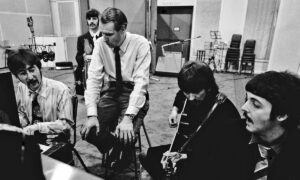
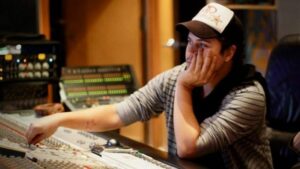
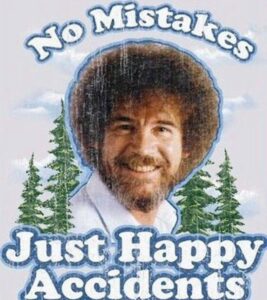
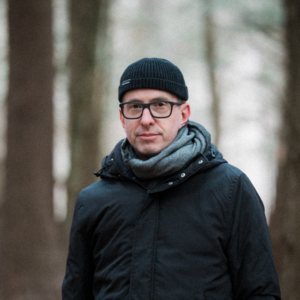 One thing that I love doing is to work with unestablished artists. It’s why I have
One thing that I love doing is to work with unestablished artists. It’s why I have 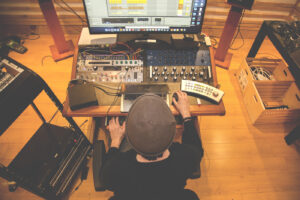 Not all genres are the same, and they require different equipment. If you were to record a cowboy outlaw record, it’s probably not the best idea to go to a micro house producer. However, I have had rock bands come to me because they wanted their album to sound electronic in nature, despite it being a rock album.
Not all genres are the same, and they require different equipment. If you were to record a cowboy outlaw record, it’s probably not the best idea to go to a micro house producer. However, I have had rock bands come to me because they wanted their album to sound electronic in nature, despite it being a rock album.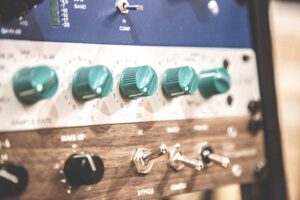 Perception is reality, and some people have different perceptions on what things are supposed to be. Especially when dealing with their art. With audio, producers often get married to their sounds, thinking that they should be specifically in this spot in the mix, when, in reality, it probably won’t translate the way you want it to. This may come from hearing said sound over and over again in whatever room, or on whatever medium they were listening to while they were making it. However, in a well treated room, with calibrated equipment, or conversely, in a club with a good, or poor sound system, it may not translate exactly how you anticipate. Some people are more judicious about this, and accept the reality. However, some you just can’t please. So is the way of the artist.
Perception is reality, and some people have different perceptions on what things are supposed to be. Especially when dealing with their art. With audio, producers often get married to their sounds, thinking that they should be specifically in this spot in the mix, when, in reality, it probably won’t translate the way you want it to. This may come from hearing said sound over and over again in whatever room, or on whatever medium they were listening to while they were making it. However, in a well treated room, with calibrated equipment, or conversely, in a club with a good, or poor sound system, it may not translate exactly how you anticipate. Some people are more judicious about this, and accept the reality. However, some you just can’t please. So is the way of the artist.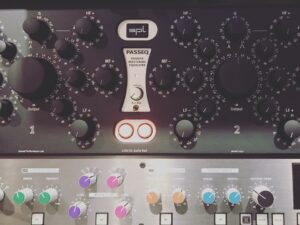 Engineers get that artists have a lot of things to say about their work, and may use poetic language in order to communicate it. And this prose sometimes leads to elaboration. However, there is a saying in sales, called K.I.S.S, which stands for Keep It Simple, Stupid. This is because people understand things if they are simplified. No need to get technical, or elaborate. Just say what you mean. A good way of easily communicating is to provide examples of things that already exist. Let’s be real, nothing is new under the sun, so if we can pinpoint where that idea is coming from, then maybe it can be recreated, with a flourish that makes it your own.
Engineers get that artists have a lot of things to say about their work, and may use poetic language in order to communicate it. And this prose sometimes leads to elaboration. However, there is a saying in sales, called K.I.S.S, which stands for Keep It Simple, Stupid. This is because people understand things if they are simplified. No need to get technical, or elaborate. Just say what you mean. A good way of easily communicating is to provide examples of things that already exist. Let’s be real, nothing is new under the sun, so if we can pinpoint where that idea is coming from, then maybe it can be recreated, with a flourish that makes it your own.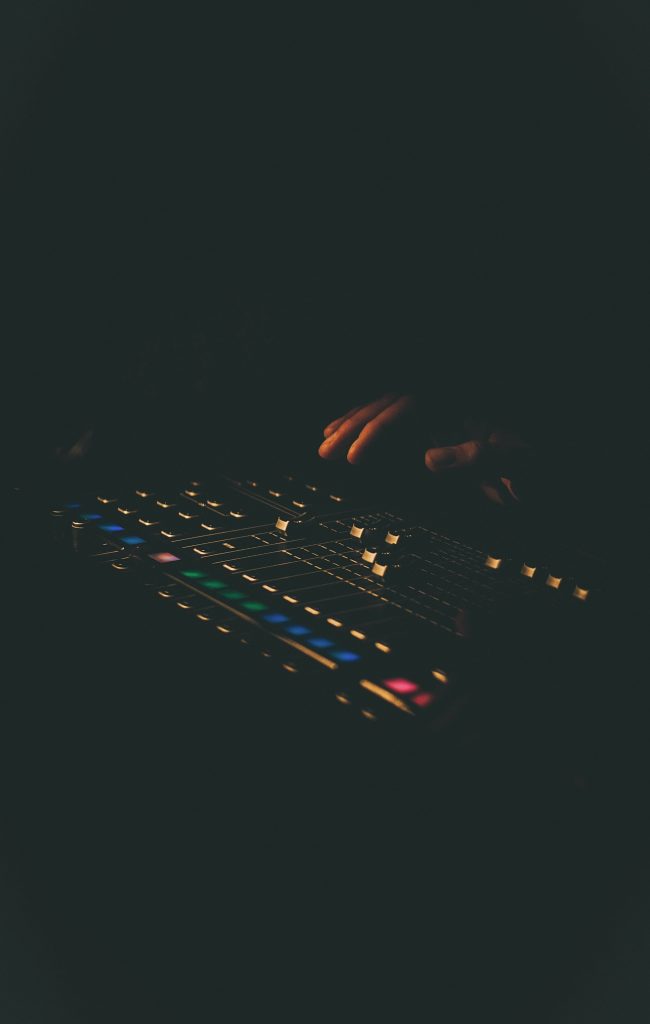 Investing too much, too fast
Investing too much, too fast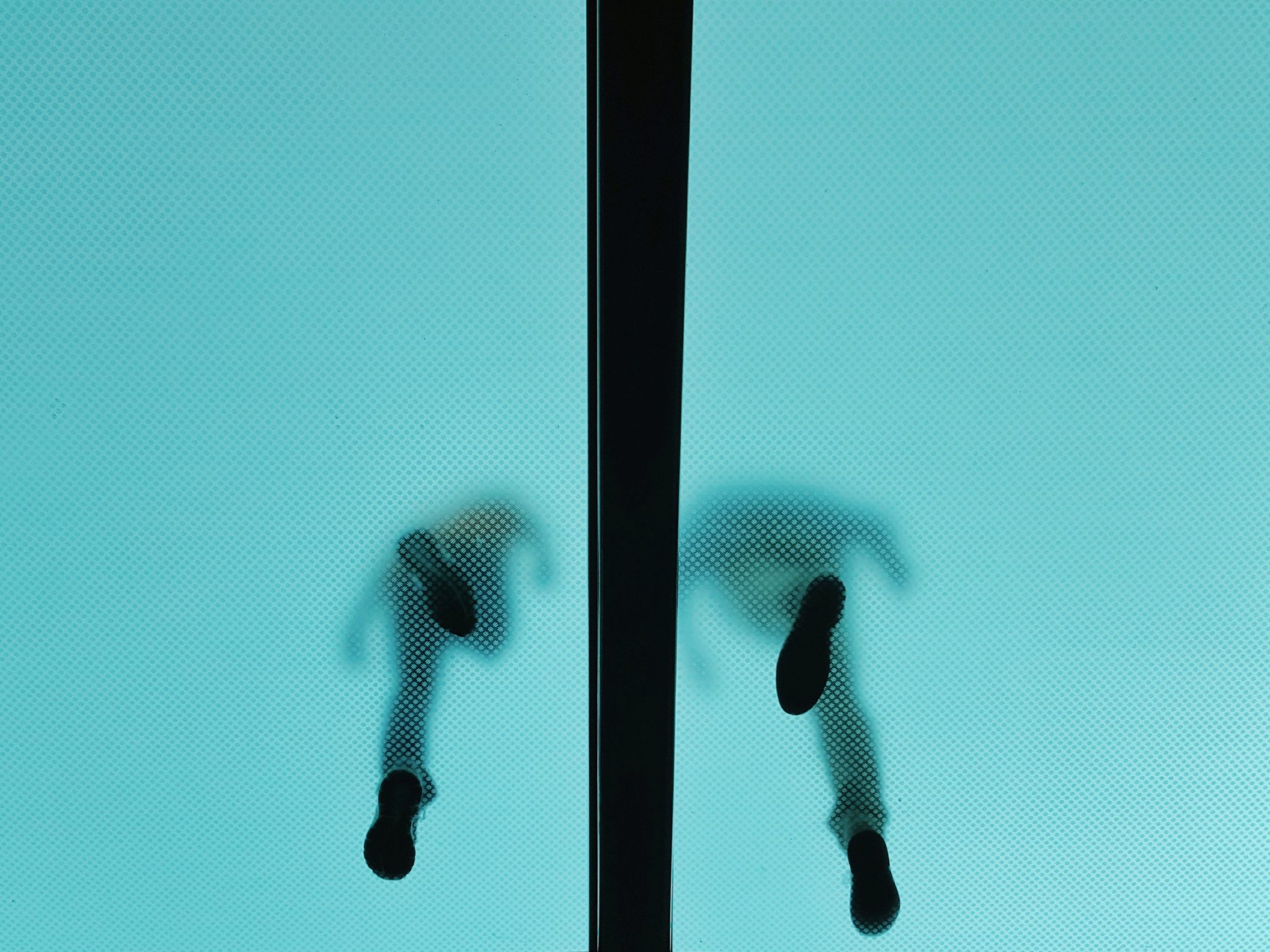 The truth is, wherever you want to go in music, you first need to produce a ton of tracks and find your path in that process. Bonus (
The truth is, wherever you want to go in music, you first need to produce a ton of tracks and find your path in that process. Bonus ( In a very digital age many people have become less social, which can make going out and meeting new people harder. I get that. Yet, not being part of a strong network doesn’t mean you won’t create great music, it simply means without having that support you may not be pushed to create your best music.
In a very digital age many people have become less social, which can make going out and meeting new people harder. I get that. Yet, not being part of a strong network doesn’t mean you won’t create great music, it simply means without having that support you may not be pushed to create your best music. To truly move on as a producer the best personal investment I can think of is to simply finish something, anything. I believe deleting your tracks reinforces your inability to finish what you started, and doesn’t bring anything good. You certainly aren’t farther ahead as a producer, and you’ll never have anything to show without completing your projects.
To truly move on as a producer the best personal investment I can think of is to simply finish something, anything. I believe deleting your tracks reinforces your inability to finish what you started, and doesn’t bring anything good. You certainly aren’t farther ahead as a producer, and you’ll never have anything to show without completing your projects.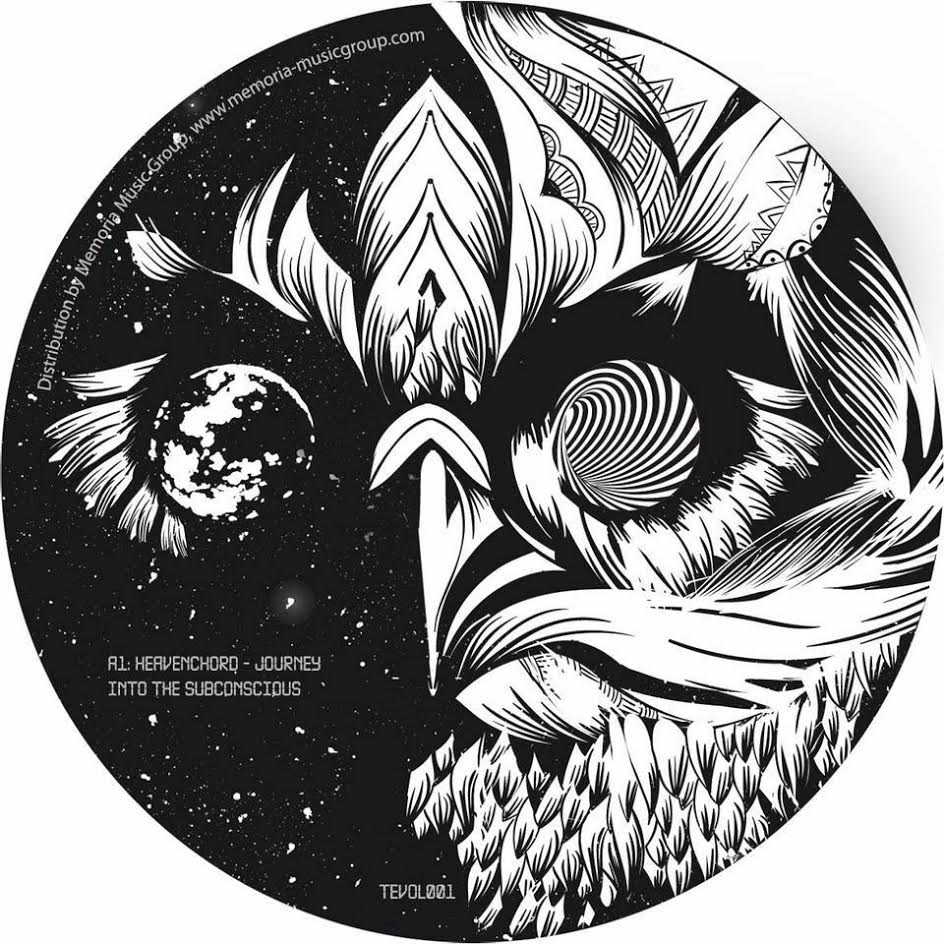 You’ve had a lot of success getting records signed, congrats!
You’ve had a lot of success getting records signed, congrats! Moving along to the final set of questions, I believe that as an individual I am very influenced by my surroundings. Given this idea,
Moving along to the final set of questions, I believe that as an individual I am very influenced by my surroundings. Given this idea,
 Ok, so how can we apply that in practice? How do we get started from scratch?
Ok, so how can we apply that in practice? How do we get started from scratch?